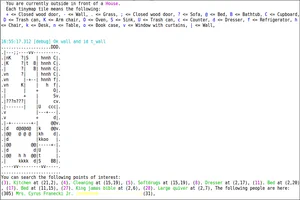Blog
My Toastmasters Experience up untill now - Why you should JOIN a toastmasters club NOW
Toastmasters truly is a place where you can develop certain skills which you would never be able to develop even if you attended the most exclusive seminaries.
16 Minutes
Jul 18, 2018
3292 Words

Cryptocurrency hype - Bitcoin - Speculation - Waste of Resources and Time
The cryptocurrency hype is just a waste of resources and time.
10 Minutes
Jul 6, 2018
1925 Words

The world is drowning in redundant code - Global Wheel Reinvention Convention
The world is drownling in redundant code. Developers are reinventing the wheel every day.
7 Minutes
Jun 29, 2018
1490 Words

Erlang Elixir Node Security Flaws
This is an ATTENTION to all Elixir/Phoenix/Erlang users out there that use distributed nodes or software that uses nodes.
8 Minutes
Jun 18, 2018
1511 Words

Why I'm not active on social media - a word about facebook, twitter, linkedin - Experiencing life from a different standpoint
Why I’m not on active on social media? Why don’t I have a online presence on social media?
10 Minutes
Jun 7, 2018
1929 Words

I've got the Perfect Elixir for your Programming
Elixir is perfect for prototyping, programming, scripting, and anything except desktop GUI.
14 Minutes
May 30, 2018
2861 Words

Mastermind Group Elixir Of Truth
RECRUITING MEMBERS FOR MASTERMIND GROUP
I’m building a Mastermind Group called Elixir of Truth.
3 Minutes
May 21, 2018
434 Words
Elixir Game Devlog 0x09 - Game Database - Importing all JSON files
Phew, It’s nearly time I implemented a Game Database! I mean, using JSON files for holding data is great but working with it in the format provided isn’t.
3 Minutes
May 17, 2018
549 Words
